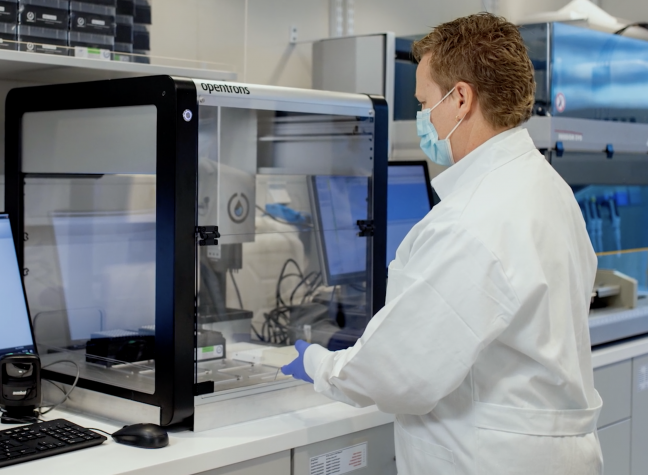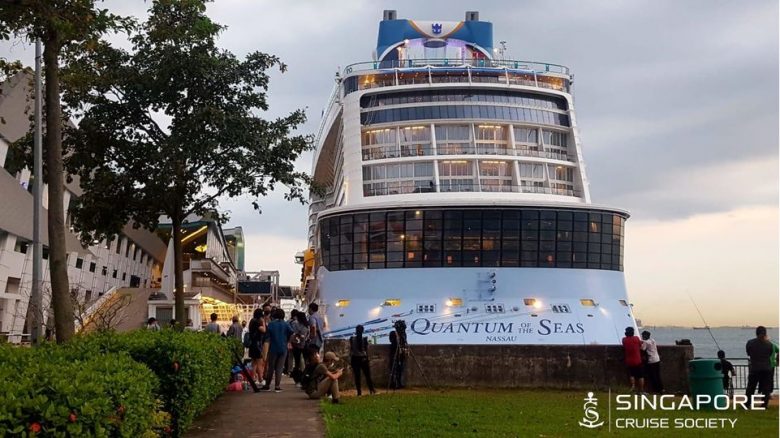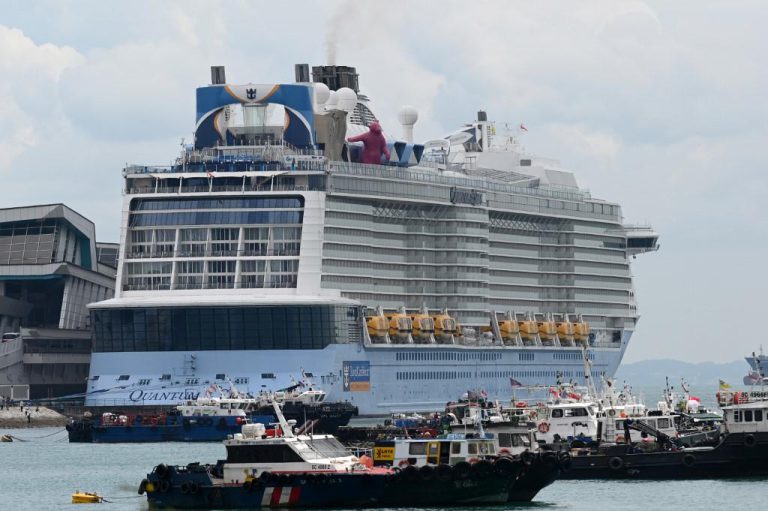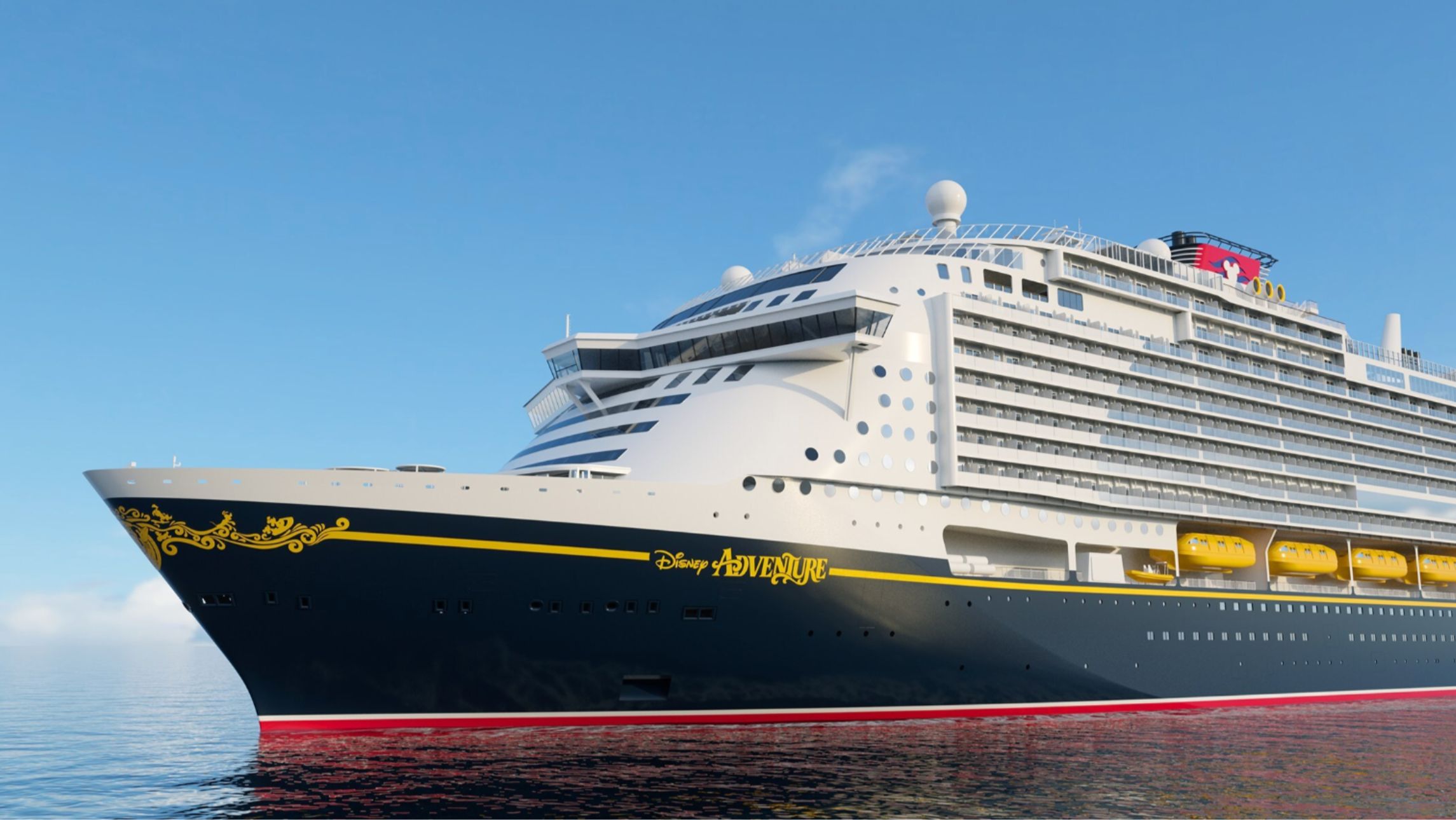Royal Caribbean has decided to press ahead with its cruises to nowhere program in Singapore despite the scare this week that saw an 83-year-old man give a positive COVID-19 test on board one of the sailings, only to return three negative tests once on shore.
But the line cancelled a cruise leaving yesterday in what it described as “an overabundance of caution”.
The cruises are backed by the Singapore Government, determined to retain its position as the SE Asian region’s leading hub for cruise vessels, and are being carried out by Royal Caribbean’s Quantum of the Seas and Dream Cruises World Dream.
They have proved a huge success, with tens of thousands of cabins booked. Only Singaporeans are allowed on board, and the ship never docks.
The world’s cruise lines, who are still to sail anywhere other than Europe, citing Singapore as a case which proves cruising can happen safely despite COVID-19.
Australia is also watching, with Cruise Lines International Association also using the Singapore example as one that proves cruising could happen in single states with home ported ships and only local passengers.
So many will have breathed a sigh of relief when news broke yesterday that the passenger had tested negative. Singapore’s Ministry of Health has rescinded the quarantine orders of the man’s close contacts, all of whom have tested negative.
 But the case has placed a question mark over on board testing, and officials are investigating the reasons for the passenger’s false-positive test on board. The ministry will support Quantum’s on-board laboratory as it reviews its testing processes.
But the case has placed a question mark over on board testing, and officials are investigating the reasons for the passenger’s false-positive test on board. The ministry will support Quantum’s on-board laboratory as it reviews its testing processes.
According to a report by The Straits Times, all passengers on the affected sailing were fully disembarked by midnight on Wednesday. Passengers were organised into groups of 10 to 25 people, with specific departure times given to prevent crowding.
All passengers underwent temperature checks before leaving the vessel, as well as an antigen rapid test at Marina Bay Cruise Terminal. Cruisers were allowed to return home, and told that they would be notified within an hour should they be COVID-positive.
To date, no other passengers on board the December 7 sailing have tested positive for COVID-19.
 Royal Caribbean announced the cancellation of its December 10 sailing. Affected guests will be provided a full cash refund, as well as a 25 per cent future cruise credit for use on subsequent voyages. The line noted that refunds would be processed immediately, with the process taking around 45 days.
Royal Caribbean announced the cancellation of its December 10 sailing. Affected guests will be provided a full cash refund, as well as a 25 per cent future cruise credit for use on subsequent voyages. The line noted that refunds would be processed immediately, with the process taking around 45 days.
The cruise line also said in an email that its December 14 3-night sailing will be going ahead as planned.
However, the faulty testing process has shaken some passengers’ confidence in the cruise line.
Mr Kelvin Chong, 31, told The Straits Times, “We understand the need to adapt to safety measures if a case is detected. But now that this case has tested negative, it makes us question the reliability of the PCR test on board.”
Royal Caribbean’s pre-cruise testing procedure involves a PCR test 48 to 72 hours before departure, at an offsite facility. Once the test is completed, results will be released within 24 hours.
The PCR test has been hailed as the ‘gold standard’ in COVID testing. As quoted in Healthline, Dr. Emily Volk, assistant professor of pathology at the University of Texas-Health in San Antonio, observes that if performed correctly, PCR tests “would be pretty close to 100 percent accurate.”
However, false-negatives and positives are possible as well. According to a report by Harvard Health Publishing, the “reported rate of false negatives may be as low as percent and as high as 30 percent”. The false positive rate is close to zero, and usually attributed to lab contamination or issues with how the test is carried out.
In contrast to Royal, Dream Cruises offers same-day antigen rapid tests. These nasal swabs are usually more economical and easier to administer, with results produced in half an hour or less. According to most experts, antigen tests are slightly less accurate, with the rate of false-negative results ranging as high as 20 to 30 percent.
To date, none of Dream Cruises pilot sailings on World Dream have reported any COVID-19 cases.
Ms Cheryl Ong, 33, a past passenger on World Dream’s November 8 voyage, notes that she would rather take a PCR test than an antigen test.
“The latter is less accurate and poses a greater risk of false-positive results, which might give me a false sense of security,” she says. “But even with PCR tests, the risks are still very much present since the incubation period for COVID is on average five to six days, up to 14 days. Hence, there will always be asymptomatic cases that go undetected in society.”
Despite the COVID scare on Quantum, Ms Ong isn’t deterred from joining a cruise with Royal in future.
Transmission risks of the coronavirus will always be present, and exposure to the virus can happen even if you are out shopping or on a staycation, she observes. Since testing does not eliminate all risks, the onus is on passengers themselves to self-monitor their own health and adhere to other safety measures like mask wearing, social distancing and good hygiene practices to stem the spread.
As for upcoming Royal sailings, some passengers are hoping that the line will follow Dream’s procedure by adding antigen tests on the day of boarding itself.
This would give them better reassurance that all who board the vessel aren’t COVID-positive.
“Although the PCR test is the ‘gold standard’ in COVID testing so far, to test 48 hours before sailing is still risky as there might be a chance for infection in between,” notes Mr Leon Lu, 31. Mr Lu is booked on Quantum’s December 14 sailing and plans to go ahead with his voyage.
He continues: “Thankfully, the recent saga turned out to be a false alarm. Nevertheless, it is a wakeup call for Royal. Perhaps they could follow Dream’s example, by adding an antigen test on top of the PCR test to improve detention efficiency.”
Cruise Passenger has reached out to Royal Caribbean for comment on whether the line plans to change its COVID testing process, and add same-day antigen tests before upcoming sailings. The line has yet to respond.
Singapore Cruise Society carried a statement from Royal Caribbean saying they were working with the Singapore Government on health protocols.









